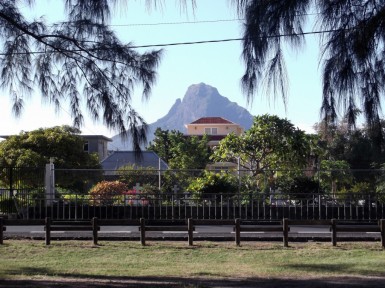by Sophie Benbow, Southwest Regional Coordinator, Madagascar
I recently travelled to Mauritius to attend a workshop funded by the FAO and the EU funded Smartfish programme. A very exciting opportunity which generated some very jealous comments from my UK based friends, although I tried to play it down as the equivalent of someone from London popping over to the Costa del Sol for a beach holiday. A mere 1½ hours plane ride from Tana, the volcanic island of Mauritius is an impressive site to behold when you fly over it, lush green sugar cane fields and tall black volcanic peaks fill the centre, and the coastal areas are encased with patchy reefs.
The workshop itself was held in a luxury resort (as these things usually are) in air conditioned splendour so all the participants were warmly dressed despite the never ending sunshine outside. I found myself in a lovely, brand new hotel in the centre of Flic-en-Flac and caused much concern from the concierge when I said that I was planning on walking to the workshop venue. It seems Mauritius; despite its small size, is not a place to stroll around. On my 20 minute commute to the workshop I saw just 2 or 3 fellow walkers, but was passed by more than 20 cars zooming along the coastal road faster than the speed limit would suggest is allowed. But despite the odd looks I received and near misses with speeding vehicles, I enjoyed the exercise!
The workshop itself was really interesting. It is always great to hear inspiring stories of community conservation and fisheries management from other countries, and it was also really brilliant to hear from government representatives who are pushing to increase the number of protected areas in their waters. I presented the octopus story from southwest Madagascar, the history of the Velondriake LMMA being formed as a result of small scale temporary octopus fishery closures. An impressive story on its own, but even more inspiring when presented to fishery ministers from Kenya where there is currently no octopus fishery management and Tanzania which is trying to implement management at the moment. Several other countries, including Comoros, Reunion and Mayotte reported that the octopus fishery is small and management has yet to be introduced, compared to the example of Rodrigues where the first nationwide octopus fishery closure, modelled on the management initiated in Velondriake is due to close in August.
Octopus species are an excellent management target, well suited to short term management techniques and I hope that over the coming months we can continue to build on the links made at this workshop to replicate the successful temporary closures model to other octopus fisheries throughout the region.




